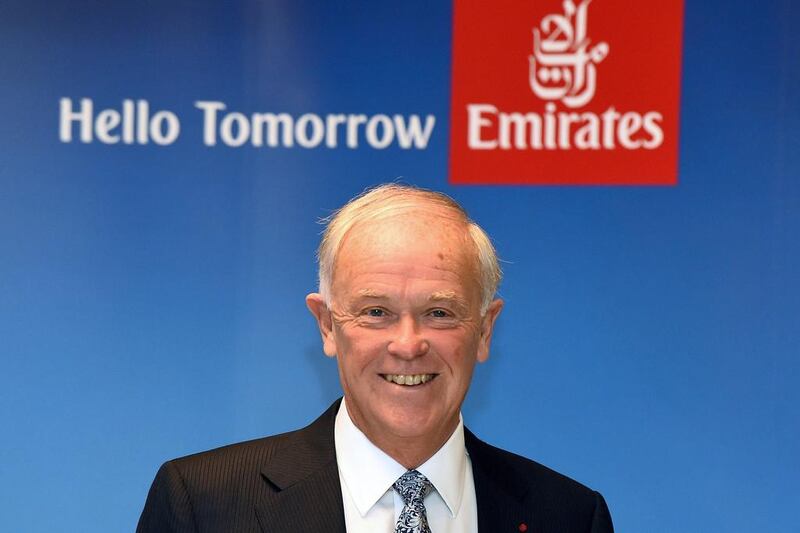Tim Clark, the president of Emirates Airline, has categorically refuted one of the most serious charges levelled against the airline by US rivals: that it benefited from a multibillion dollar bailout by the Government of Dubai when a fuel transaction went wrong in 2009.
"That is untrue. All cash losses incurred by Emirates as a result of its fuel trades in place in 2008-09 were settled in full from the airline's own cash reserves and not paid for by the government of Dubai," Mr Clark said in Washington, where he is in talks with US authorities over the threat to open skies aviation policy.
The fuel allegation was contained in a “white paper” document prepared by American, Delta and United airlines which claimed to contain evidence of unfair state subsidy of the Arabian Gulf airlines Emirates, Etihad and Qatar by their governments.
The document said that Emirates benefited to the tune of US$2.7 billion in subsidies from the governments’ assumption of fuel hedging losses via the Investment Corporation of Dubai, and $1.6bn in letters of credit.
“The letters of credit mentioned in the white paper were in fact provided by Emirates to our owners, ICD, in support of the fuel trades novated, not the other way round,” Mr Clark said. “Novated” is a legal term used when an obligation is transferred from one party to another.
The claim against Emirates on fuel charges is only one of many levelled by the US airlines, but aviation industry experts regarded it as the most serious, amounting to a direct assumption by a government body of a commercial loss.
Mr Clark also responded to charges that the airline had “stolen” traffic from US carriers in the course of its expansion to become one of the biggest airlines in the world.
“What Emirates is doing is competing in the marketplace – we don’t ‘steal’ customers. We offer a great product at a competitive price, which appeals to the consumers who choose to fly with us,” Mr Clark said. “
The three US carriers’ obsession with market share makes all the more apparent what they are really after: not competition, not open markets or ‘open skies’, but outright government-directed market allocation.” He said that the debate over subsidies was just a smokescreen for “the real issue at hand” which is that US carriers want to maintain their market share at all costs.
"The three biggest US carriers, who together with their partners already control about two-thirds of international flights from the US, want to further limit the international air transport choices available to American consumers, airports, local and regional economies," he said.
fkane@thenational.ae
Follow The National's Business section on Twitter





